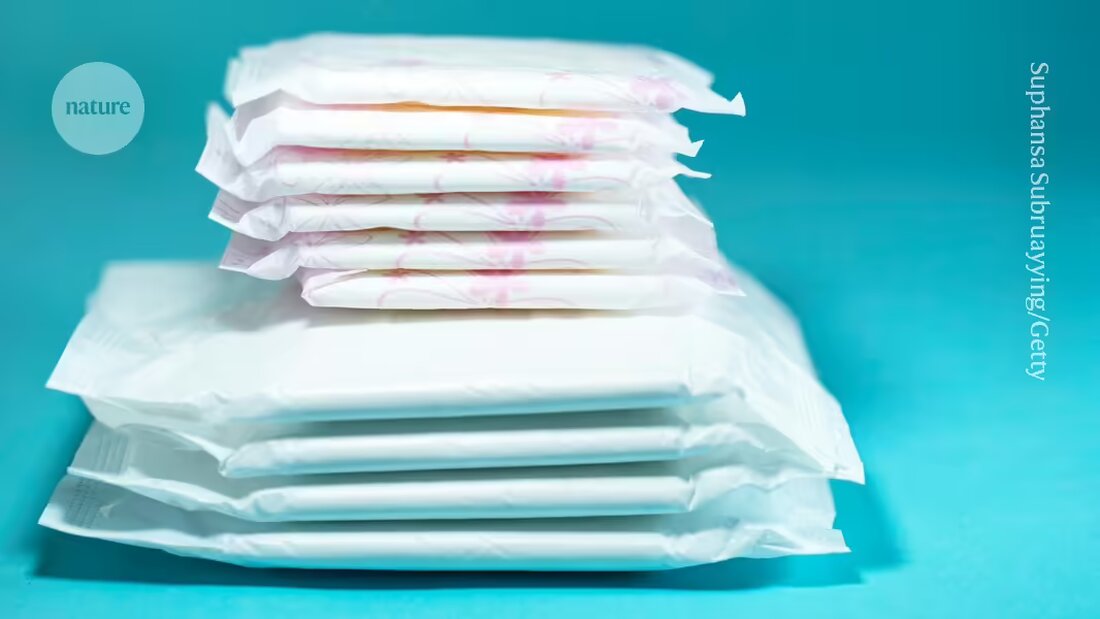A biodegradable molecule derived from seaweed that forms a gel when it comes into contact with blood could, according to a study published today 1prevent leakage of menstrual products.
The alginic acid product was significantly better at retaining blood in a menstrual pad than the commonly used fillers, which absorb blood but can leak when saturated. The gel also eliminated leakage from menstrual cups.
Modern menstrual products — pads, tampons and cups — have changed little over time, says study co-author Bryan Hsu, a biomedical scientist at Virginia Polytechnic Institute and State University in Blacksburg. Hsu's team wanted to find a different approach to dealing with menstrual blood. “We want to make it gel so it can be handled better.”
The study arose from Hsu's doctoral research examining self-assembling hydrogels that were found to be highly effective in blood clotting 2. “I started thinking,” says Hsu, “what can I do with it?”
Leak-proof pads
Menstrual blood can present a unique challenge because it contains enzymes that prevent blood from clotting. Hsu and his colleagues tested a series of polysaccharides - long-chain carbohydrate molecules - and found that a high-molecular-weight alginic acid combined with glycerin was best at forming a long-lasting gel with pig blood that had been treated to reduce clotting.
The researchers tested a powdered formulation both as a filler in a menstrual pad and in a short piece of fabric rolled up in a menstrual cup using an artificial vagina. They also added an antimicrobial molecule, trimethyl chitosan, to stimulate the growth ofStaphylococcus aureus-Inhibit bacteria that can cause a rare but potentially fatal toxic shock syndrome associated with the use of tampons or menstrual cups. The team is continuing to develop the pad and menstrual cup that contains the molecule, and is researching how it could be used in a tampon.
Sharra Vostral, a historian of science, technology and gender studies at Purdue University in West Lafayette, Indiana, says the development is an interesting twist on menstrual technology aimed at hiding the fact that a person is menstruating. For people in "all the places where it's not acceptable to have a period or to pretend there's no blood, the pads and tampons and now the cups are really important," says Vostral, who has written about the history of menstrual products.
But caution is advised when using antimicrobial products in the vagina because there are "lots of friendly bacteria that you need there to have a healthy vaginal microbiome."

 Suche
Suche
 Mein Konto
Mein Konto

